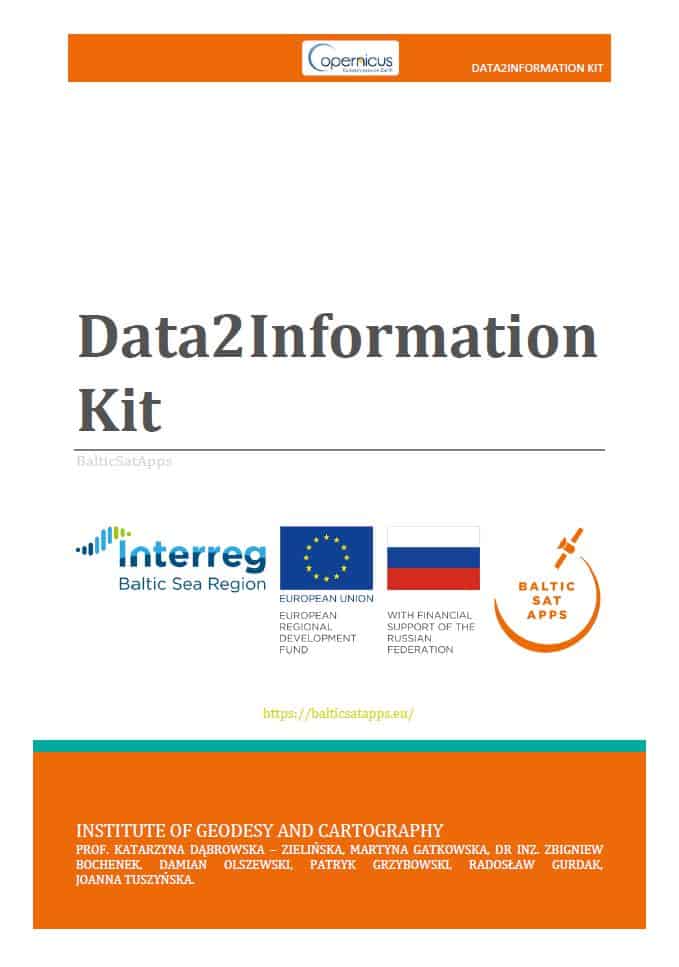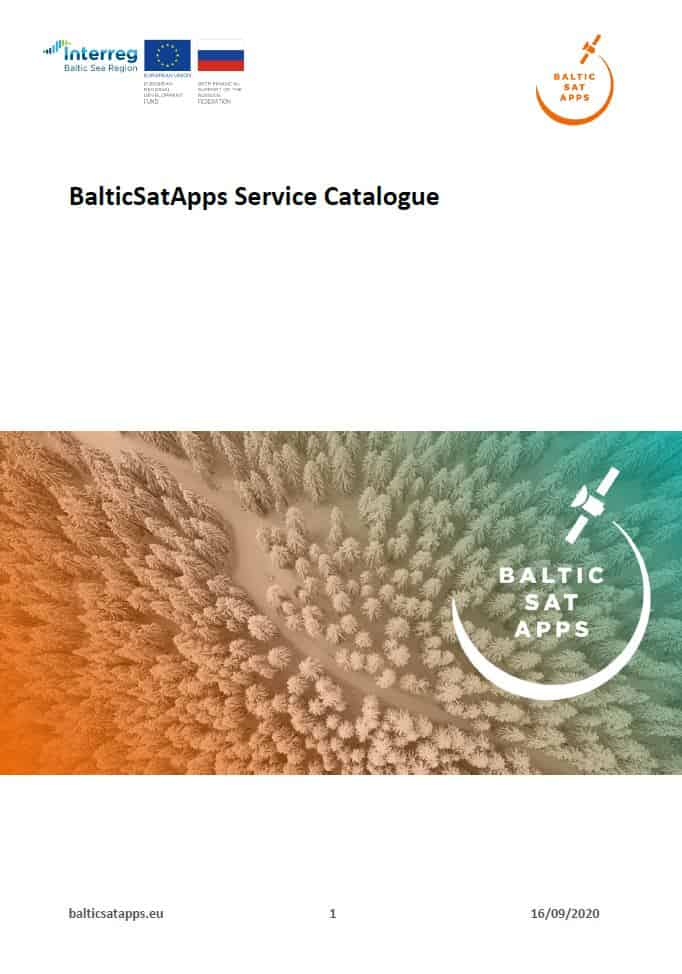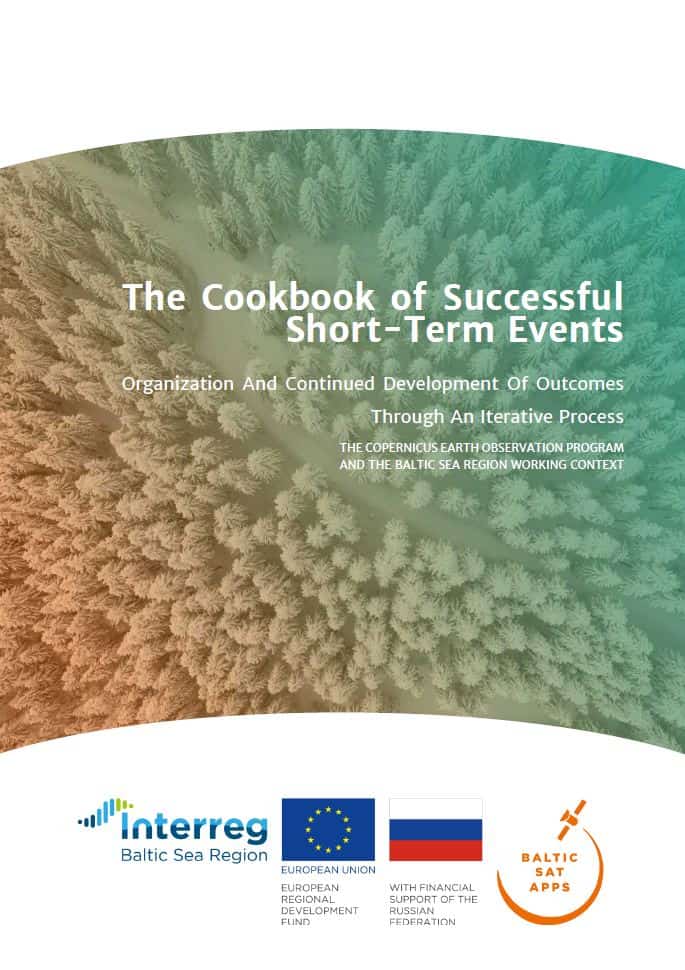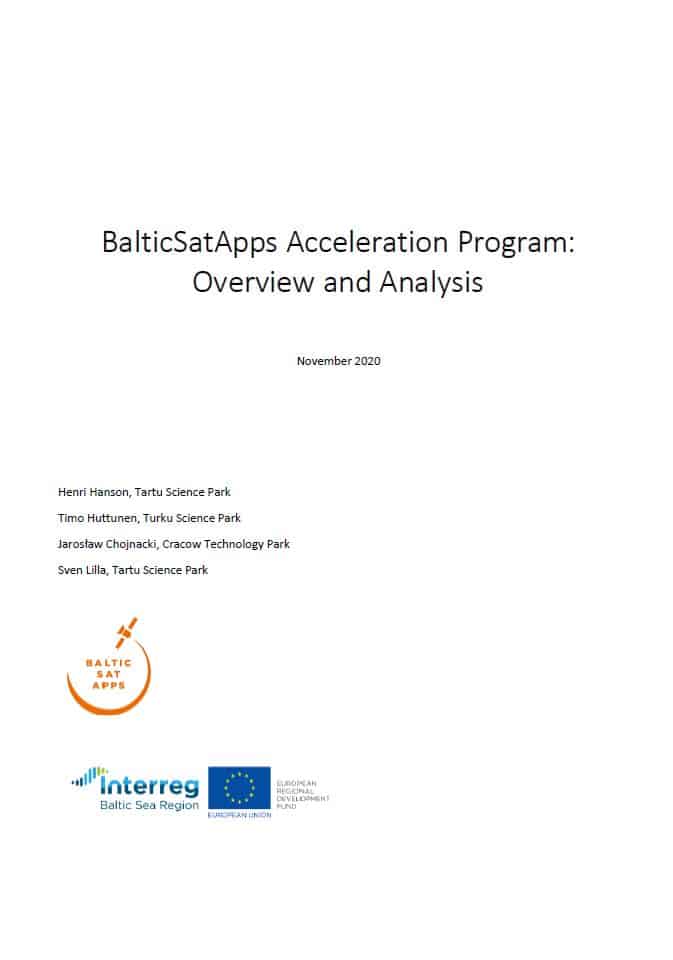BalticSatApps
Since 2014, the satellites and sensors of the European Copernicus programme have delivered Earth observation data free of charge to anyone. Development of scientific infrastructure as satellites, receiving stations and data centers, and Earth Observation (OB) services requested huge investments in terms of EU funds and research. Despite many efforts, a significant number of EO services was still underused as a result of infrastructure gaps and poor guaranteers on long-term service availability.
The wealth of data holds tremendous potential for new services in the environment, transport, energy and other sectors. Many commercial entities in the Baltic Sea region, especially small and medium- sized enterprises (SMEs) could offer new services or enhance their existing services if they could use Earth Observation (EO) data. The entrepreneurs needed clarity and support in developing new business models and services based on the use of EO data. This data covered air quality, the ozone layer, emissions, solar radiation, marine safety, urban planning, and forest management.
BalticSatApps intended to increase awareness about the usability of data provided by the European Copernicus Programme, improve access to EU-based satellite data, and stimulate demand and innovation through co-creation and iterative development methodologies.
Budgets
in numbers
-
2.85MillionTotal
-
1.85MillionErdf
-
0.43MillionEni + Russia
-
0.00MillionNorway
Achievements
Acceleration programme launched
In order to increase awareness about the data provided by the European Copernicus Programme, BalticSatApps organised a series of educational events and an acceleration programme to increase interest and facilitate the use of Earth Observation (EO) in business. Running the BalticSatApps acceleration programme has provided an excellent opportunity to network with start-ups and EO experts from the Baltic Sea region. The programme has contributed to the founding of ten new start-ups in Estonia, Finland and Poland, and supported them to commercialise the satellite data. The new start-ups operate in areas such as urban planning, agriculture, and drones.
New interface allows new possibilities
BalticSatApps developed a Russian interface for Copernicus data. The Interface integrates Copernicus and Russian satellite data sources, and it is possible for anyone to test it with the help of the instructions provided by the project.
The interface contains a catalogue of remote sensing data. It helps to organise the order and access to the data provided by the European Copernicus Programme and Russian satellites. By combining Copernicus and Russian satellite data, the project provided better conditions for small and medium-sized enterprises giving services in territory monitoring and management. The operators dealing with territory monitoring and management got access to up-to-date and real-time spatial data for accurate decision-making.
The Interreg project BalticSatApps used EUR 2.69 million to improve access to valuable satellite data, unveiled the tremendous potential of Earth Observation data, provided technical and business knowledge, and supported businesses in the Baltic Sea region.
Outputs
Data2Information kit

Catalogue of innovative Earth Observation services

Cookbook of organising EO hackathons and iterative development of service ideas

BalticSatApps Acceleration Programme: Overview and Analysis

Project Stories
-
22.02.2021
BalticSatApps paved the way for Earth Observation-based innovations in the region
The Interreg project BalticSatApps successfully improved access to EU-based satellite data for entrepreneurs and helped drive new businesses in the Baltic Sea region. Thanks to EU funding, people with smart ideas received support that enables them to further shape our region into a better place to live and work in.Read full story
Partners
University of Turku
- TownTurku
- RegionVarsinais-Suomi
- CountryFinland
- RepresentativeTuomas Ranti
- Phone
- E-Mail
- Web
Finnish Meteorological Institute
- TownHelsinki
- RegionHelsinki-Uusimaa
- CountryFinland
- RepresentativeAli Nadir Arslan
- Phone
- E-Mail
- Web
Turku Science Park Ltd
- TownTurku
- RegionVarsinais-Suomi
- CountryFinland
- RepresentativeTimo Huttunen
- Phone
- E-Mail
- Web
Tartu Science Park Foundation
- TownTartu
- RegionLõuna-Eesti
- CountryEstonia
- RepresentativeAndrus Kurvits
- Phone
- E-Mail
- Web
Technology Transfer Centre as an internal unit of Cracow University of Technology
- TownKrakow
- RegionMiasto Kraków
- CountryPoland
- RepresentativeJakub Kruszelnicki
- Phone
- E-Mail
- Web
University of Tartu
- TownTartu
- RegionLõuna-Eesti
- CountryEstonia
- RepresentativeAnu Reinart
- Phone
- E-Mail
- Web
Institute of Geodesy and Cartography
- TownWarsawa
- RegionMiasto Warszawa
- CountryPoland
- RepresentativeKatarzyna Dąbrowska-Zielińska
- Phone
- E-Mail
- Web
Krakow Technology Park
- TownKraków
- RegionMiasto Kraków
- CountryPoland
- RepresentativeJarosław Chojnacki
- Phone
- E-Mail
- Web
St.Petersburg State Unitary Enterprise St.Petersburg Information and Analytical Centre
- TownSaint-Petersburg
- RegionCity of St. Petersburg
- Country
- RepresentativeMaria Kuznetsova
- Phone
- E-Mail
- Web
Swedish National Space Agency
- TownSolna
- RegionStockholms län
- CountrySweden
- RepresentativeKarin Holmquist
- Phone
- E-Mail
- Web
Non-commercial Partnership «European-Russian InnoPartnership»
- TownSaintt-Petersburg
- RegionCity of St. Petersburg
- Country
- RepresentativeMaria Kuzko
- Phone
- E-Mail
- Web
-
Project managerTuomas RantiUniversity of Turku
-
Legal representativeEsa HämäläinenUniversity of Turku
-
Financial managerMirja JyrkinenUniversity of Turku
-
Communication managerJohanna AaltonenUniversity of Turku



